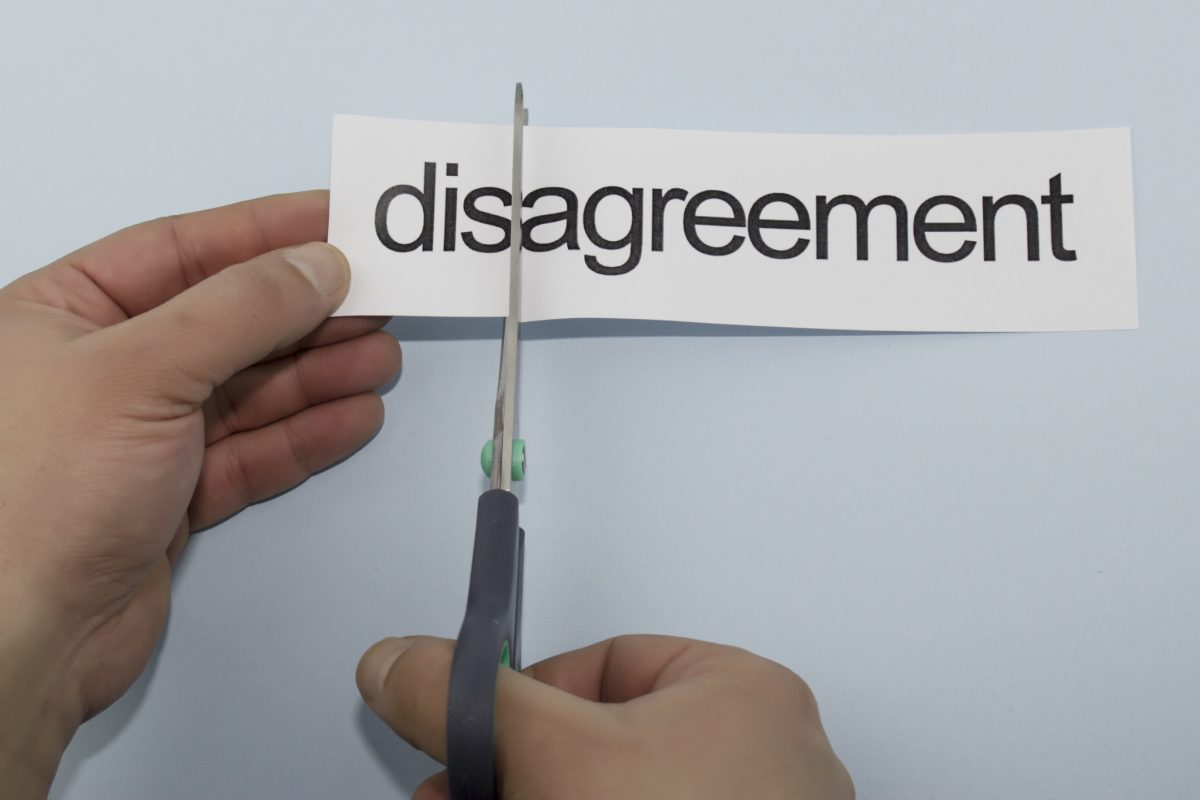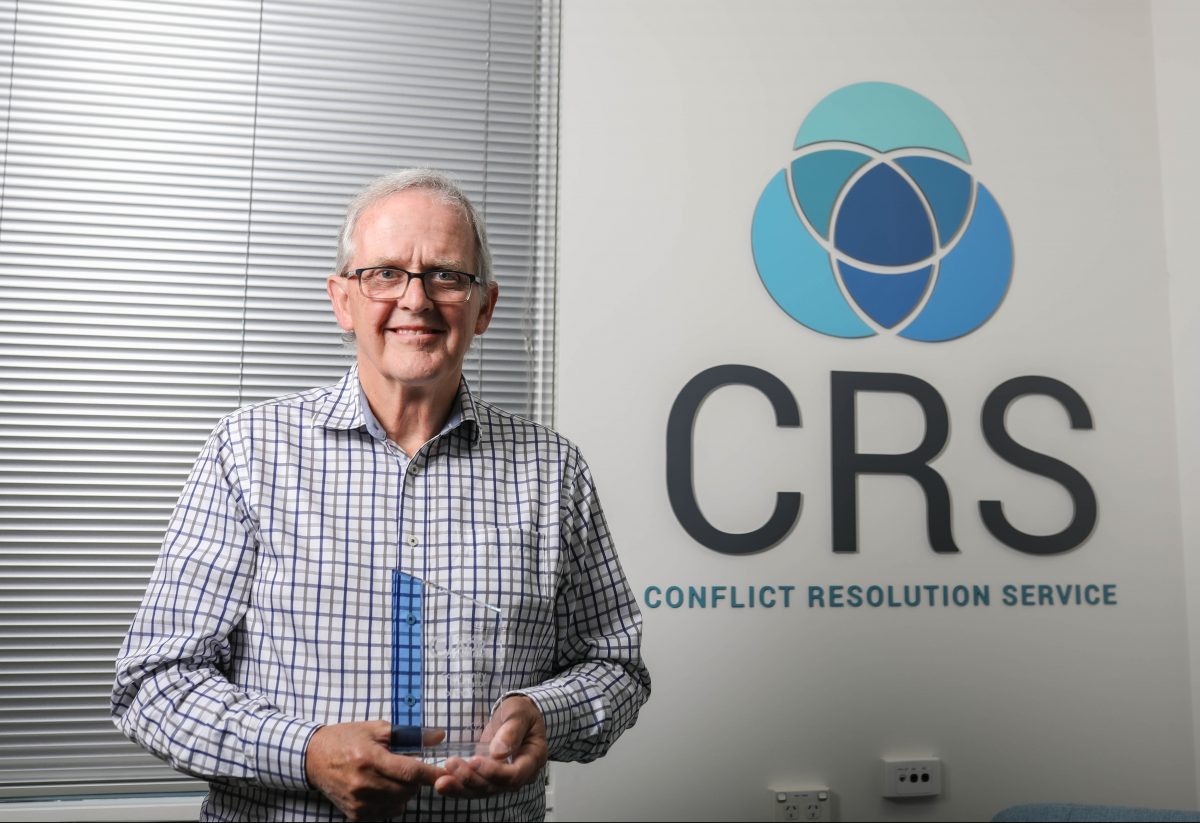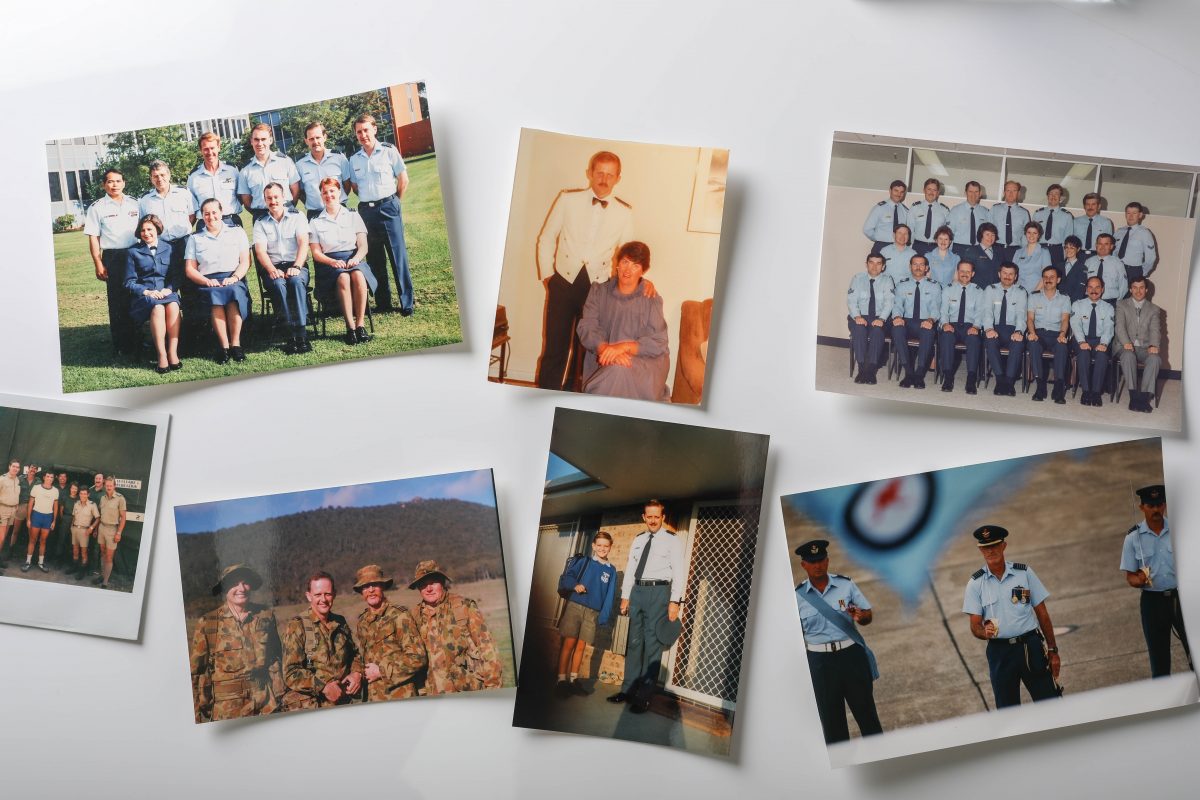
Mediation is the art of empowering people to find resolutions to their own conflict. Photo: Blueshot.
Over his 21 years as a mediator, Nigel Biginell has learned a thing or two about conflict.
He says left unresolved, it can be like a “boil on your neck”.
“It starts off as an irritation but left to fester, it can get ugly and quite frankly, very painful,” he says.
Nigel served as a squadron leader in the Australian Air Force where he was known for giving good advice. After two decades, it was time for a career change and someone suggested he put some of his soft skills to good use as a mediator.
He soon found out giving advice and mediating were almost mutually exclusive.
“In mediation you can’t give advice – that’s sacrosanct,” he says.
“You can empower people to find solutions to the problems they have.”
Nigel completed a short course at the now closed Institute of Arbitrators and Mediators Australia, an advanced course at the Conflict Resolution Service (CRS) and a masters in dispute resolution at UTS.
A mediator at CRS for almost his whole career, he’s had plenty of opportunities to put his lessons into practice in a wide range of disputes.
He’s handled everything from developers seeking a reversal of government decisions on unapproved plans to complaints about discrimination in the workplace. Mediation’s now second nature to him.
“It’s a very tried and tested process that’s quite rigorous,” he says.
“If you use the skills you’re taught and stick to the established processes, you shouldn’t need to give advice.”

The Australian Dispute Centre this year named Nigel Biginell its Community Mediator of the Year. Photo: Zach Griffith.
Nigel estimates up to 85 per cent of conflicts can come to a mutually beneficial resolution through mediation, but says certain factors sway the odds in favour of success – the first being early intervention.
“The sooner you address the conflict, the better,” he says.
“One reason is people have a natural tendency to want to shore up their ideas and beliefs with other people.
“In the workplace for example, they’ll seek colleagues who’ll vindicate their viewpoint. And the more they get told they’re right, the more fixed they become in their position, and it can become difficult to consider other viewpoints.”

Photos of Conflict Resolution Service mediator Nigel Biginell in his air force days. Photo: Zach Griffith.
Nigel says one of the biggest components of successful mediation is trust, in which neutrality plays a big part.
“People sometimes say ‘someone at work mediated with us and it didn’t work’,” he says.
“I say therein lies the problem – because more often than not there will be a perception that a colleague is more on one party’s side than the other.
“Third-party mediation removes any conflict of interest concerns.”
Nigel tries to establish trust in himself and the process during pre-mediation with each party individually.
“I find out the story and I talk about my role and the process. Then I talk them through ways they may be able to participate in the mediation to get the best outcome,” he says.
“I find when everyone knows what to expect, that’s a better jumping off point.
“And while most people start off nervous when mediation begins – because they’re opposite someone with whom there’s conflict – they look to me as someone who will get them through that experience.”
Nigel specialises in ‘facilitative mediation’, which looks at the interests of both parties and maintains a constructive exchange of ideas and negotiation, ultimately enabling clients to find their own resolutions.
“Mediation has numerous benefits,” he says.
“For starters, it’s far less expensive than litigative methods. Rather than a court-imposed lose-win situation, mediation imparts a mutually beneficial outcome. The parties control the time, location and duration of mediation rather than being at the mercy of the courts.
“It’s voluntary and the parties can withdraw any time they like. And because it can be used in the early stages of a dispute, you can avoid irreparable damage to relationships.”
The Australian Dispute Centre this year named Nigel `Community Mediator of the Year’.
He folds the skills that helped win the award into every session, weaving through the techniques he has learned over the years.
For nationally accredited mediation services that resolve conflict professionally, competently and compassionately, contact the Conflict Resolution Service.


















